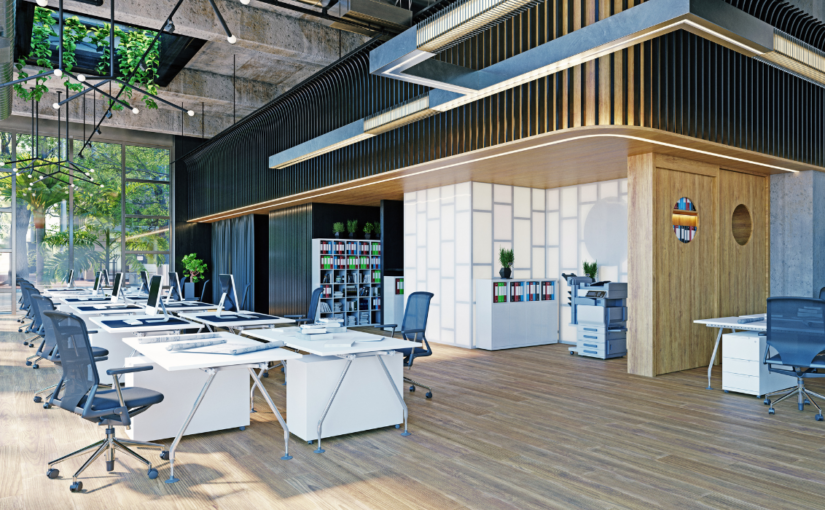back
The Rise of Flexible Workspaces: Impact on Office Leasing and Development
02-2023

People’s working habits have significantly changed in recent years, with a growing preference for flexible, remote, and co-working environments. The office leasing and development sector has been significantly impacted by this change, which has sparked the expansion of a new class of real estate assets: flexible workspaces.
The rise of flexible workspaces can be attributed to a number of developments in technology that enable remote work, shifts in the demands of the modern workforce, and rising interest in flexible and affordable work arrangements. Co-working spaces, private offices, virtual offices, and meeting rooms are just a few of the options that flexible workspaces offer businesses. All of these options can be rented on an as-needed basis without a long-term commitment.
Flexible workspaces’ capacity to adapt to the shifting needs of businesses is one of their main advantages. For traditional office spaces, businesses used to frequently sign long-term leases, which frequently led to underused space and inefficiencies. Flexible workspaces are perfect for businesses that are expanding or contracting because they allow companies to easily scale up or down their space requirements as needed.
The affordability of flexible workspaces is another advantage. Traditional office space costs can be prohibitive for many businesses, especially in desirable locations. Flexible workspaces provide businesses with the flexibility they need at a fraction of the price, making them an affordable alternative. Many flexible workspaces also include a variety of value-added services in their monthly rates, including meeting space, printing resources, and high-speed internet.
The market for office leasing and development has also been significantly impacted by the rise of flexible workspaces. Businesses are looking for flexible, affordable, and convenient working arrangements, and as a result, there has been an increase in the demand for flexible workspaces, which has resulted in the construction of more co-working spaces and serviced offices.
Many traditional office landlords have started to reposition their buildings to meet the needs of the flexible workspace market in response to this demand. To create a more inviting and adaptable working environment, this entails retrofitting existing buildings with contemporary workspaces and adding new amenities, like meeting rooms and break-out areas.
New real estate asset classes, such as those that provide co-working space, have also emerged as a result of the growth of flexible workspaces. These businesses possess and run flexible workspaces, which they subsequently lease to companies on a flexible schedule. These businesses have raised a sizable amount of money, which they are utilizing to construct new co-working spaces and increase their footprint in strategic areas.
The popularity of flexible workspaces has significantly impacted the market for real estate investments in addition to having an effect on office leasing and development. Flexible workspace providers and co-working spaces are seen as a high-growth and alluring real estate asset class, and investors are looking to invest in them more and more. As a result, more investment funds are being raised to invest in this industry, giving businesses a new source of funding for their expansion.
The transformation of the workplace is a further effect of the rise of flexible workspaces. There has been a trend toward more remote and flexible working as businesses look for more adaptable and affordable working arrangements, which has resulted in a more dispersed and diverse workforce. New types of work environments are now required as a result, including remote workspaces and virtual offices, which give companies the adaptability they need to meet the shifting demands of their workforce.
The market for office leasing and development has been significantly impacted by the rise of flexible workspaces. The increased demand for flexible, remote, and co-working spaces has changed how businesses view their office space needs and resulted in the creation of a new real estate asset class. New types of work environments, like remote workspaces and virtual offices, have emerged as a result of the trend toward more adaptable and economical working arrangements. These environments give companies the flexibility they need to meet the shifting demands of their workforce.
With a variety of advantages and opportunities, the rise of flexible workspace is generally a good development for companies, landlords, and investors. It is likely that the impact of flexible workspaces on the office leasing and development industry will only continue to grow in the years to come as the trend toward flexible working continues to gain momentum.
F2H Capital Group is a debt advisory firm specializing in negotiating the best terms for your commercial real estate projects. The company offers a range of financial products and services, including fixed loans, bridge loans, and construction loans across all asset types. Please contact us for any of your financing needs.

